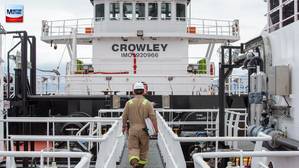Rhine Shipping Costs Rise as River Level Falls Further
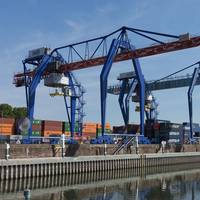
Freight shipping costs on the Rhine river in Germany surged this week as water levels fell further, compelling vessels to sail less than half full, commodity traders said on Thursday.Freight deliveries were still taking place, with loads divided among more vessels, which increases costs for cargo owners. But rain is at last forecast for next week, which could raise river levels, they said.Prices for a tanker freighter sailing from Rotterdam to Karlsruhe rose to about 80 euros ($88.58) a tonne of cargo from 46 euros last week and 34 euros in late March…
US Fossil Fuel, Farm Groups Rail Against Trump Port Fee Plan

Fossil fuel and agriculture industry executives on Wednesday criticized a plan by President Donald Trump's administration for big fees on China-linked ships entering U.S. ports, arguing at a hearing in Washington that the move would hobble their ability to export everything from coal to soybeans.The proposed fees on China-built vessels could top $3 million per U.S. port call.The administration says the fees would curb China's commercial and military dominance on the high seas and promote a U.S.
Shipbuilding Plan Could Undermine U.S. Operators, Industry Execs say
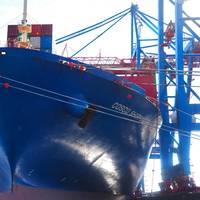
A Trump administration proposal aimed at reviving the U.S. shipbuilding industry may backfire by imposing steep fees on China-linked vessels—penalties that industry leaders say would hurt American ship operators and ports rather than help them, industry executives said at U.S. Trade Representative hearings on Monday.At issue are proposed, stacking fees on China-built vessels that could top $3 million per U.S. port call. The Trump administration says the fees would curb China's growing commercial and military dominance on the high seas and promote domestically built vessels. U.S.
Blue Wasp Marine Unveils Pelican Suite Software
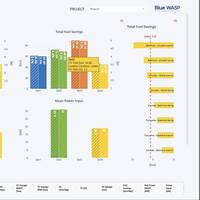
Wind assisted ship propulsion (WASP) pioneer Blue Wasp Marine announced the launch of its latest software tool, Pelican Suite, which will enable vessel owners, operators and charterers to assess and optimize a range of WASP solutions.Pelican Suite hosts a collection of tools to assess the suitability of WASP solutions, both pre- and post-installation. It provides important insights such as the probability that a certain rudder angle or grid load is exceeded, or which routes are more favorable for wind assistance.
Proposed Port Fees Could Choke U.S. Coal, Ag Exports
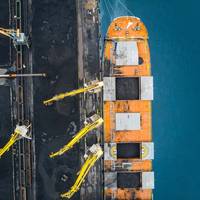
President Donald Trump's plan to revive U.S. shipbuilding using massive fees on China-linked ship visits to American ports is causing U.S. coal inventories to swell and stoking uncertainty in the embattled agriculture market, as exporters struggle to find ships to send goods abroad.Trump is drafting an executive order that would rely on funding from a U.S. Trade Representative proposal to levy fines of up to $1.5 million on China-made ships or vessels from fleets that include ships made in China.Those potential port fees have limited the availability of ships needed to move agriculture…
Techano Oceanlift to Deliver Crane for Dual-Fuel Hybrid CSV Newbuild
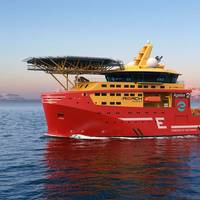
Techano Oceanlift has secured a contract by Sefine Shipyard to deliver an offshore crane to a newbuild construction support vessel (CSV) that the Turkish shipyard is building for a strategic partnership between Agalas, Eidesvik and Reach Subsea.Techano Oceanlift, subsdidiary of Oslo-listed Nekkar, will supply a 150-tonnes capacity crane capable of performing subsea construction work and topside lifting operations. The company’s scope of work includes engineering, manufacturing…
USCG Safety Alert: Recalled Defective Heat Detectors

The Coast Guard recently investigated an engine room fire on board an inspected towing vessel which led to the discovery of issues with the maintenance and installation of fire detection systems on board multiple towing vessels. During the investigation, several towing vessels were discovered to have defective heat detectors installed in their engine rooms. These detectors had been recalled by the manufacturer in 2019 for failure to activate within their listed temperature range.
USCG Safety Alert: Understand the Explosion Hazards of Shipping Coal
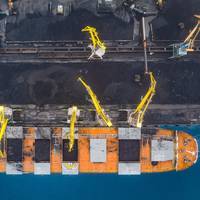
On November 27, 2024, approximately 100 nautical miles off the coast of Virginia, a bulk carrier shipping a type of coal called “Bailey High Vol Coking Coal” experienced consecutive explosions in the two forward cargo holds. While still under investigation, the explosions are likely a result of the accumulation of methane gas that created an explosive atmosphere and resulted in significant damage to the two associated cargo holds. It was soon discovered that the other five cargo holds also had highly elevated levels of methane that were approaching the Lower Explosive Limit…
Kongsberg Maritime Unveils New Mooring Installation Solution for OSVCs
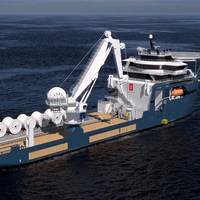
Kongsberg Maritime has developed a mooring capable solution for Offshore Construction Vessels (OSCVs), expanding the capabilities of construction vessels to make them suitable for pre-laying of mooring lines.By integrating a purpose designed anchor handling winch, shark jaws and stern rollers into the design of OSCVs at the newbuild stage, vessel owners can now equip their ships to perform a broader range of mooring operations, Kongsberg Maritime said.This advancement allows OSCVs to handle more tasks independently…
Visual Estimate of Height Led to Crane Hitting Bridge
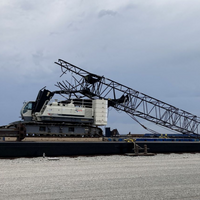
A captain and barge company managers not identifying the crane they were towing was too high to pass under the Mackinac Bridge near Mackinaw City, Michigan, led to the crane hitting the bridge, the US National Transportation Safety Board (NTSB) has concluded.On May 7, 2023, the towing vessel Nickelena was transiting the Straits of Mackinac, while towing a deck barge transporting a crawler crane, when the crane boom struck the main span of the Mackinac Bridge. The contact bent the crane boom backwards…
Navigating a Regulatory Storm: California Strikes Again

Onerous emissions rules are certainly no stranger to the maritime sector at large, arguably none more so than those that work and live in California. The U.S. West Coast state is a global shipping hub, with a coastline spanning more than 800 miles and 11 major ports. It also is known for its penchant for creating and enforcing maritime rules, rules that on occasion transcend the technological means to enact them. Enter Jennifer Carpenter, President and CEO of the American Waterways Operators (AWO), the national advocacy group for the tugboat, towboat and barge sectors.
Marine Cybersecurity: Key Takeaways from the Coast Guard's Final Rule
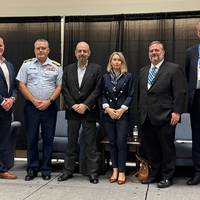
The U.S. Coast Guard (USCG) published a final rule on January 17, 2025, addressing Cybersecurity in the Marine Transportation System (the “Final Rule”), which seeks to minimize cybersecurity-related transportation security incidents (“TSIs”) within the maritime transportation system (“MTS”) by establishing requirements to enhance the detection, response, and recovery from cybersecurity risks. Effective July 16, 2025, the Final Rule will apply to U.S.-flagged vessels, Outer Continental Shelf, and onshore facilities subject to the Maritime Transportation Security Act of 2002 (“MTSA”).
US Coast Guard Publishes Final Rule on Cybersecurity

The US Coast Guard has published a final rule in the Federal Register to update cybersecurity requirements for U.S.-flagged vessels, outer continental shelf facilities and facilities subject to Maritime Transportation Security Act of 2002 (MTSA).The rule addresses current and emerging cybersecurity threats in the marine transportation system by adding minimum cybersecurity requirements to help detect risks and respond to and recover from cybersecurity incidents. These requirements include developing and maintaining a cybersecurity plan…
Persistent Tracking: Vital to Safeguard Shipping in Dark Seas

The ever-worsening geopolitical situation is creating unprecedented challenges for the shipping sector and wider supply chain.An expanding shadow fleet, openly undertaking illegal Ship-To-Ship (STS) transfers of Russian oil and Liquified Natural Gas (LNG), has compounded the longer-standing dark shipping problem that has emerged as a result of illegal activity (people, arms, drugs, contraband and fish smuggling), which not only threatens national security, but also the safety of vessels and heightens concerns regarding environmental disaster and supply chain disruption.In response…
U.S. Waterways Charterer opts for Fueltrax
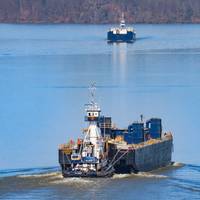
The industry-leading fuel management systems from Fueltrax are typically installed by oceangoing vessels looking to cut costs, better manage their fuels, and reduce emissions. Now vessels that primarily operate on inland and near-coastal waterways are reaping the benefits as well.A major U.S. charterer and vessel owner has outfitted half a dozen of its vessels and is realizing the advantages. The operator uses the Fueltrax EFMS, the most widely deployed and effective system available.The Fueltrax EFMS is a state-of-the-art system designed and supported by former NASA engineers.
Cyber Security in the Maritime Sector - What You Need to Know Now
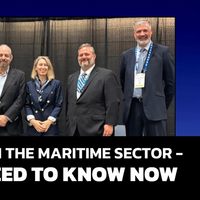
The U.S. Coast Guard proposes to update its maritime security regulations by adding regulations specifically focused on establishing minimum cybersecurity requirements for U.S.-flagged vessels, Outer Continental Shelf facilities, and U.S. facilities subject to the Maritime Transportation Security Act of 2002 regulations. This proposed rule would help to address current and emerging cybersecurity threats in the marine transportation system. In this Maritime Matters: The Marinelink Podcast…
SubChapter M Towboat Rules Six Years Later: "Scorecard is a Mixed Bag"
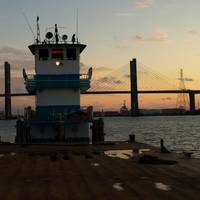
The more than half decade that has passed since the inception of the subchapter M towboat rule affords an up-close-and-personal look at how it is going. The scorecard is a mixed bag.More than six years ago, the U.S. Coast Guard (USCG) began inspecting towing vessels for compliance with the new towboat rules; specifically, 46 CFR Subchapter M. It has been a long road to compliance with many starts and stops, and much learning on both sides of the law.Has it been a success? If success is measured by Certificates of Inspection, then yes.
USCG: Do as I Say; Not as I Do

Irony: (noun) a state of affairs or an event that seems deliberately contrary to what one expects and is often amusing as a result. But this is anything but funny.It has been a busy news month for the nation’s fifth uniformed service; the United States Coast Guard. Of note, changes to the United States Coast Guard (USCG) Sexual Assault and Sexual Harassment (SASH) regulations for U.S.-flagged commercial vessels entered into force on December 23, 2024. Separately, and from inside the Beltway…
RightShip Revises Timeline for Vessel Inspection Age Trigger
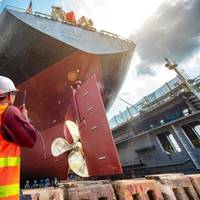
RightShip, an ESG-focused digital maritime platform, has released a revised timeline for implementing its vessel inspection age trigger, reducing the inspection threshold from 14 to 10 years through a four-phased approach.The update has been introduced after extensive industry engagement, following the initial announcement of the inspection age trigger in October 2024.Constructive dialogue with RightShip’s customers and respected industry associations - including INTERCARGO, the International Chamber of Shipping (ICS)…
Bergen Engines Adds ioCurrents’ Marine Data Platform to Its Offer

Seattle-based maritime data analytics company ioCurrents has signed a strategic agreement with engine supplier Bergen Engine, expanding the reach of its MarineInsight data analytics platform.The partnership will enable Bergen Engines to offer ioCurrents’ MarineInsight platform as a value-added solution to customers in new builds, repowers, and overhauls, leveraging real-time data analytics to optimize vessel performance.By combining Bergen Engines’ expertise in designing and delivering high-performance medium speed engines and power systems with ioCurrents’ data analytics…
BAR Technologies, Mitsubishi Corporation, Nihon Shipyard ink MOU
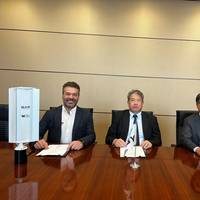
BAR Technologies, a wind propulsion leader and innovative simulation-driven marine engineering consultancy, signed a Memorandum of Understanding (MoU) with Mitsubishi Corporation, and Nihon Shipyard which will set a framework for collaborations between the three businesses following the successful installation of BAR Technologies’ patented wind propulsion system WindWings onto Mitsubishi Corporation’s vessel Pyxis Ocean. Under the terms of the MoU, BAR Technologies, Mitsubishi Corporation…
ONE and Seaspan Form Ship Management JV
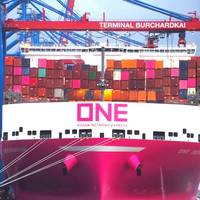
Ocean Network Express (ONE) and Seaspan Corporation have established OneSea Solutions, a company focused on technical ship management and maritime talent development.ONESEA is jointly owned and operated by the companies and headquartered in Singapore. ONESEA will offer technical ship management services for container vessels owned by ONE and vessels chartered by ONE from vessel owners. It will pursue the best of safety, efficiency, decarbonizing and digital initiatives, aiming to realize operational excellence of ONE's vessel operations.Raman Handa…
When it Comes to Workboat Engines, the Future is Flexible
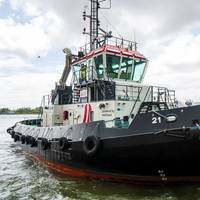
Vessel owners are making new fuel choices, but increasingly, they have options to help reduce the risk of doing so.The latest engine developments aim to make it easier for owners to avoid the chicken-and-egg fuel price and availability risks of new fuels.As Roger Holm, President of Wärtsilä Marine and Executive Vice President at Wärtsilä Corporation recently pointed out, the challenge is that owners won’t commit to a fuel today that is expensive, only produced in small quantities and may be usurped by another fuel that scales faster and more affordably.


